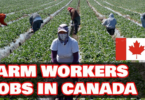Canada Healthcare Jobs With Visa Sponsorship: Complete Guide for 2025
Canada’s healthcare system continues to face critical staffing shortages, creating exceptional opportunities for international healthcare professionals seeking employment with visa sponsorship. With an aging population and expanding healthcare needs, Canadian employers are actively recruiting qualified foreign workers across various healthcare disciplines.
This comprehensive guide explores everything you need to know about finding healthcare jobs in Canada with visa sponsorship, including in-demand positions, immigration pathways, licensing requirements, job search strategies, and steps to build a successful healthcare career in Canada.
Understanding Canada’s Healthcare System and Job Market
Canada operates a publicly funded healthcare system known as Medicare, administered by individual provinces and territories while adhering to national standards established by federal legislation. The system employs over 1.9 million healthcare workers across various disciplines, making healthcare one of Canada’s largest employment sectors.
The Canadian healthcare landscape encompasses:
Public hospitals and clinics operated by provincial health authorities Private healthcare facilities providing specialized services Long-term care facilities and home care organizations Research institutions and academic medical centers Indigenous health services Telehealth and digital health enterprises
Current Healthcare Labor Shortages
Canada faces significant healthcare worker shortages across multiple disciplines. Several factors contribute to these shortages:
An aging healthcare workforce with many professionals approaching retirement Population growth and demographic shifts increasing demand for services Geographic distribution challenges, particularly in rural and remote communities Pandemic-related burnout and early retirements among healthcare staff
These shortages have prompted healthcare employers and provincial governments to implement aggressive international recruitment strategies, including streamlined immigration pathways and attractive incentive packages for foreign healthcare workers.
In-Demand Healthcare Positions with Visa Sponsorship
Physicians and Medical Specialists
Family physicians remain among the most sought-after healthcare professionals in Canada. According to the Canadian Medical Association, approximately 5 million Canadians lack access to a primary care provider. Medical specialists in high demand include:
Psychiatrists Emergency medicine physicians Anesthesiologists Oncologists Geriatricians Obstetricians and gynecologists
The pathway to practicing medicine in Canada involves credential verification through the Medical Council of Canada, provincial licensing, and often additional training or assessment. While challenging, physician pathways offer significant visa sponsorship opportunities through federal and provincial nominee programs.
Nursing Professionals
Registered Nurses represent Canada’s largest healthcare occupation, with approximately 439,000 practitioners. Current projections indicate a shortage of nearly 60,000 nurses by 2026, creating substantial opportunities for internationally educated nurses.
Nursing positions with strong visa sponsorship potential include:
Critical care nurses Emergency department nurses Operating room nurses Mental health nurses Long-term care nurses Nurse practitioners
The National Nursing Assessment Service (NNAS) evaluates international nursing credentials, followed by provincial/territorial nursing regulatory body registration. Many Canadian employers provide comprehensive support throughout this process for promising candidates.
Allied Health Professionals
Allied health professionals face significant demand across various specialties:
Medical laboratory technologists Medical radiation technologists Respiratory therapists Occupational therapists Physiotherapists Speech-language pathologists Audiologists Pharmacists
Each allied health profession has its regulatory body requiring credential assessment and licensing. Programs like the Internationally Educated Health Professionals Initiative (IEHPI) support the integration of these professionals into the Canadian healthcare system.
Mental Health Practitioners
Mental health services face critical staffing shortages, particularly following the pandemic. Positions in high demand include:
Clinical psychologists Registered psychiatric nurses Mental health counselors Social workers specializing in mental health Addiction specialists
Mental health positions often qualify for various immigration pathways, including the Federal Skilled Worker Program and Provincial Nominee Programs.
Long-Term Care Professionals
Canada’s aging population has intensified demand for long-term care professionals, including:
Licensed practical nurses (LPNs) Personal support workers (PSWs) Healthcare aides Recreation therapists Dementia care specialists Gerontological social workers
Long-term care facilities frequently sponsor visas for qualified international candidates, particularly for regulated nursing positions.
Healthcare Administration and Support
The administrative side of healthcare also presents opportunities:
Health services managers Healthcare facility administrators Clinical informatics specialists Health information managers Healthcare project managers Patient care coordinators
These positions often require understanding of the Canadian healthcare system but may offer alternative pathways for professionals with transferable skills from other healthcare systems.
Visa and Immigration Pathways for Healthcare Professionals
Express Entry System
The Express Entry system manages applications for three federal economic immigration programs:
Federal Skilled Worker Program (FSWP): Evaluates candidates based on factors including education, work experience, language proficiency, age, arranged employment, and adaptability. Many healthcare occupations qualify under National Occupational Classification (NOC) skill levels 0, A, or B.
Canadian Experience Class (CEC): Designed for individuals with at least one year of skilled work experience in Canada, making it an excellent pathway for those who initially come to Canada as temporary workers or students.
Federal Skilled Trades Program (FSTP): While less common for healthcare professionals, this can apply to certain technical roles in healthcare settings.
The Comprehensive Ranking System (CRS) scores Express Entry candidates, with higher-scoring candidates receiving Invitations to Apply (ITAs) for permanent residence. Healthcare professionals often score well due to their education levels and in-demand skills.
Provincial Nominee Programs (PNPs)
Each Canadian province and territory (except Québec) operates its own Provincial Nominee Program, many with healthcare-specific streams:
British Columbia PNP – Healthcare Professional category: Targets physicians, nurses, allied health professionals, and other healthcare workers.
Alberta Opportunity Stream: Includes numerous healthcare occupations on its eligible occupations list.
Saskatchewan Healthcare Worker category: Offers pathways for healthcare professionals in in-demand occupations.
Manitoba PNP – Healthcare Worker stream: Specifically designed for healthcare workers with job offers in Manitoba.
Ontario Human Capital Priorities Stream: Often prioritizes healthcare occupations based on labor market needs.
Nova Scotia Physician Stream: Specifically for family physicians and specialists with job offers in Nova Scotia.
New Brunswick Critical Worker stream: Includes healthcare roles among eligible occupations.
PNPs can offer significant advantages, including lower point thresholds and prioritized processing for healthcare workers.
Québec Immigration Programs
Québec operates its own immigration system, including:
Québec Regular Skilled Worker Program: Uses a points-based system that often favors healthcare professionals.
Québec Experience Program (PEQ): For those with Québec work experience or Québec educational credentials.
Québec faces substantial healthcare worker shortages and actively recruits internationally educated healthcare professionals, particularly those proficient in French.
Temporary Work Permits
Temporary work permits often serve as entry points for healthcare professionals:
Labour Market Impact Assessment (LMIA) Work Permits: Employers must demonstrate no qualified Canadians are available for the position.
LMIA-exempt Work Permits: Include options such as the International Mobility Program and certain free trade agreements.
Global Talent Stream: Provides expedited processing for certain high-skilled positions, including some healthcare technology roles.
Many healthcare professionals first obtain temporary work permits while completing Canadian licensing requirements, then transition to permanent residence.
Rural and Northern Immigration Programs
The Rural and Northern Immigration Pilot and Atlantic Immigration Program support employers in smaller communities and Atlantic provinces to hire foreign nationals for positions they cannot fill locally. Healthcare occupations feature prominently in these programs, often with expedited processing and lower barriers to entry.
Finding Healthcare Employers Offering Visa Sponsorship
Healthcare Recruitment Agencies
Specialized healthcare recruitment agencies frequently connect international healthcare professionals with Canadian employers offering visa sponsorship:
Medijobs Canada: Specializes in physician, nursing, and allied health recruitment across Canada.
Healthcare Recruitment Partners: Works with hospitals and health authorities nationwide.
MedWorld Advisors: Focuses on physician recruitment and licensing assistance.
HFO Healthcare: Connects healthcare professionals with positions in various Canadian regions.
Drake Medox: Specializes in nursing and care worker placement.
These agencies typically provide support throughout the immigration process, from credential verification to work permit applications.
Provincial Health Authorities
Provincial health authorities frequently recruit internationally and sponsor visas:
Alberta Health Services: Canada’s largest integrated health system, actively recruiting internationally.
Saskatchewan Health Authority: Offers dedicated international recruitment programs.
Nova Scotia Health Authority: Provides sponsorship particularly for rural positions.
Northern Health (British Columbia): Focuses on recruiting to northern and remote communities.
Interior Health (British Columbia): Offers sponsorship programs for various healthcare disciplines.
Most provincial health authorities maintain dedicated international recruitment websites with current opportunities.
Professional Association Job Boards
Professional associations maintain job boards advertising positions with visa sponsorship:
Canadian Medical Association: Physician opportunities nationwide.
Canadian Nurses Association: Nursing positions across all specialties.
Canadian Association of Medical Radiation Technologists: Medical imaging and radiation therapy positions.
Canadian Society for Medical Laboratory Science: Laboratory position listings.
Canadian Physiotherapy Association: Physiotherapy opportunities.
Canadian Pharmacists Association: Pharmacy positions.
Online Healthcare Job Platforms
Several online platforms specialize in healthcare positions with visa sponsorship:
HealthForceOntario Job Portal: Ontario-focused healthcare positions.
HealthMatch BC: British Columbia healthcare opportunities.
HealthcareJobSite.ca: Nationwide healthcare job board.
Indeed Canada – Healthcare: Features filterable visa sponsorship options.
Workopolis – Healthcare: National job board with sponsorship information.
Credential Recognition and Licensing for International Healthcare Professionals
Each healthcare profession in Canada has specific credential recognition and licensing requirements. Understanding these processes is essential before beginning your job search and immigration journey.
Physicians and Medical Specialists
International medical graduates must complete several steps:
- Verification of medical credentials through the Medical Council of Canada
- Medical Council of Canada Qualifying Examination (MCCQE) Part I and potentially Part II
- Assessment of readiness for practice through the National Assessment Collaboration (NAC) examination
- Application for residency positions through the Canadian Resident Matching Service (CaRMS) or alternative assessment pathways
- Provincial medical regulatory authority licensing
Some provinces offer practice-ready assessment programs allowing experienced international physicians to demonstrate competency without completing a full Canadian residency.
Nursing Professionals
Internationally educated nurses must:
- Submit credentials to the National Nursing Assessment Service (NNAS)
- Receive an Advisory Report from NNAS
- Apply to the provincial/territorial nursing regulatory body
- Complete additional competency assessments or bridging programs if required
- Pass the NCLEX-RN examination (for Registered Nurses)
- Meet language proficiency requirements
- Register with the provincial/territorial regulatory body
The process typically takes 12-24 months, though some provinces have introduced accelerated pathways for nurses from certain countries with compatible education systems.
Allied Health Professionals
Each allied health profession has specific requirements, generally including:
- Educational credential assessment
- Professional qualification recognition by the appropriate regulatory body
- Completion of competency assessments
- Possible bridging education or supervised practice
- Professional licensing examinations
- Language proficiency verification
- Registration with provincial regulatory authority
Organizations such as the Canadian Alliance of Physiotherapy Regulators, the Canadian Association of Occupational Therapists, and the Canadian Society for Medical Laboratory Science oversee assessment of international credentials in their respective fields.
Bridging Programs
Bridging programs help international healthcare professionals transition to Canadian practice:
International Medical Graduate (IMG) programs: Help international physicians prepare for Canadian examinations and residency applications.
Internationally Educated Nurses Bridging Program: Available in several provinces to help nurses meet Canadian standards.
Internationally Educated Physiotherapists Exam Preparation Program: Helps prepare for Canadian licensing exams.
Pharmacy Examining Board of Canada (PEBC) preparation programs: Assists international pharmacists.
Medical Laboratory Technology bridging programs: Offered through community colleges.
These programs typically include clinical placements, exam preparation, communication skills development, and orientation to the Canadian healthcare system.
Application Strategies for Healthcare Positions with Visa Sponsorship
Creating a Canadian-Style Healthcare Resume
Canadian healthcare employers expect specific resume formats:
Begin with a professional summary highlighting key qualifications and specialties Focus on clinical skills and relevant experience rather than general duties Include specific metrics and achievements (e.g., patient volumes, procedure counts) Detail familiarity with relevant medical technologies and methodologies Emphasize adaptability, cultural competence, and teamwork skills Include a section on licensing status or pathway to Canadian licensure Format to be concise (typically 2-3 pages for healthcare professionals)
Tailor your resume to each position, highlighting experience most relevant to the specific role and facility.
Effective Interview Techniques
Healthcare interviews in Canada often assess both clinical competence and cultural fit:
Prepare for behavioral interview questions using the STAR method (Situation, Task, Action, Result) Demonstrate knowledge of Canada’s healthcare principles and the provincial system where applying Highlight experience with diverse patient populations and cultural sensitivity Prepare examples showing teamwork, conflict resolution, and adaptability Be ready to discuss differences between your home country’s healthcare system and Canadian practices Show familiarity with patient-centered care models and interdisciplinary approaches
Virtual interviews are common for international applicants, so practice with the technology and consider lighting, background, and connectivity in advance.
Negotiating Compensation and Benefits
Healthcare salaries vary significantly by province, specialty, and experience:
Physicians: Family physicians earn $250,000-$350,000 annually; specialists range from $300,000-$700,000 depending on specialty.
Registered Nurses: $75,000-$100,000 annually depending on province and specialization.
Pharmacists: $90,000-$120,000 annually.
Physiotherapists: $75,000-$95,000 annually.
Medical Laboratory Technologists: $65,000-$85,000 annually.
Respiratory Therapists: $70,000-$90,000 annually.
Research current salary ranges in your specific province and specialty. Consider total compensation including benefits, continuing education allowances, relocation assistance, and pension contributions when evaluating offers.
Many healthcare employers offer relocation packages including:
Airfare for you and immediate family members Temporary accommodation upon arrival Moving allowance for shipping personal belongings Immigration legal support and filing fee coverage Credential verification and licensing fee reimbursement Orientation to the Canadian healthcare system Mentorship programs pairing you with established practitioners
Larger health authorities and positions in rural areas typically offer more comprehensive relocation packages.
Regional Opportunities and Considerations
Urban Centers vs. Rural Communities
While most international healthcare professionals initially target major urban centers like Toronto, Vancouver, and Montreal, rural and remote communities offer significant advantages:
More accessible visa pathways through rural-focused immigration programs Higher salaries and generous incentive packages Accelerated career advancement opportunities Lower cost of living allowing faster financial establishment Broader scope of practice and more diverse clinical experience Stronger community integration and support More direct immigration pathways with lower competition
Provincial programs like the British Columbia Practice Ready Assessment program for international medical graduates specifically target rural placements with dedicated immigration support.
Provincial Healthcare Systems and Employment Opportunities
Each province and territory has unique healthcare structures and opportunities:
British Columbia: Strong demand for healthcare workers in northern and interior regions. BC’s Health Match program actively recruits international healthcare professionals.
Alberta: Facing physician shortages, particularly in rural areas. The Rural Education Supplement and Integrated Doctor Experience (RESIDE) program offers financial incentives for rural practice.
Saskatchewan: Significant demand across all healthcare professions. The Saskatchewan International Physician Practice Assessment (SIPPA) helps international medical graduates enter practice.
Manitoba: Active recruitment for all healthcare disciplines, with streamlined pathways through the Manitoba Provincial Nominee Program for healthcare workers.
Ontario: Canada’s largest healthcare system with diverse opportunities. The Access Centre for Internationally Educated Health Professionals supports integration into Ontario’s healthcare workforce.
Quebec: Requires French language proficiency for most positions. Offers accelerated immigration pathways for healthcare workers through the Quebec Experience Program.
Atlantic Provinces (New Brunswick, Nova Scotia, Prince Edward Island, Newfoundland and Labrador): Facing critical healthcare worker shortages with generous incentives and dedicated immigration streams through the Atlantic Immigration Program.
Northern Territories (Yukon, Northwest Territories, Nunavut): Offer exceptionally high salaries and comprehensive benefits packages to attract healthcare professionals to remote communities.
Success Stories: International Healthcare Professionals in Canada
Dr. Mirai Patel, Family Physician from India
Dr. Patel graduated from a medical school in Mumbai and practiced for five years before immigrating to Canada. After completing the Medical Council of Canada evaluation exams, she entered a family medicine residency program in Manitoba. Upon completion, she received permanent residence through the Manitoba Provincial Nominee Program, establishing a practice in Winnipeg where she now mentors other internationally educated physicians.
“The process was challenging, but the support from Manitoba Health made the transition manageable. The physician shortage here meant I could build a practice quickly, and the community has been incredibly welcoming. My advice is to start the credential verification process early and be open to opportunities outside major cities.”
Carlos Rodriguez, Registered Nurse from the Philippines
Carlos worked for eight years as an ICU nurse in Manila before applying to positions in British Columbia. A hospital in northern BC sponsored his work permit while he completed the NNAS assessment and provincial registration. The rural location qualified him for expedited processing through the Rural and Northern Immigration Pilot. After gaining permanent residence, he pursued a Nurse Practitioner program at the University of British Columbia.
“Working in a smaller community gave me incredible hands-on experience across many different areas. The hospital supported me through the entire licensing and immigration process, even covering some of my examination fees. Now I have permanent residence and am advancing my career with employer support for further education.”
Aisha Nkosi, Medical Laboratory Technologist from Nigeria
Aisha came to Canada initially as an international student, completing a bridging program for internationally educated medical laboratory technologists in Ontario. This program included supervised clinical placements and exam preparation. Upon certification, she secured a position with a hospital network in the Greater Toronto Area, eventually obtaining permanent residence through the Canadian Experience Class.
“The bridging program was crucial for my success. It helped me understand Canadian laboratory standards and prepared me for the certification examination. Coming as a student first gave me time to adapt to the Canadian healthcare environment while working toward my credentials.”
Liam O’Connor, Physiotherapist from Ireland
Liam applied directly to positions in Atlantic Canada, securing a job offer from a rehabilitation center in Nova Scotia. His Irish credentials qualified for expedited assessment through existing agreements between regulatory bodies. The Atlantic Immigration Program provided his pathway to permanent residence. After five years, he opened his own physiotherapy practice specializing in sports medicine.
“The Atlantic Immigration Program made the permanent residence process remarkably straightforward. Nova Scotia needed physiotherapists, and the provincial health authority helped with everything from credential recognition to finding housing. The lower cost of living compared to Ireland allowed me to establish myself financially and eventually open my own practice.”
Overcoming Challenges in the Immigration Process
Licensing and Credential Recognition Timelines
The credential recognition process can be lengthy and complex. Strategies to address this include:
Begin documentation and verification processes before arriving in Canada Consider bridging programs specifically designed for your profession Explore alternative interim roles in your field while completing licensure Connect with professional associations offering exam preparation and support Research reciprocal recognition agreements between Canada and your home country Consider starting in provinces with accelerated pathways for international professionals
Many healthcare facilities offer clinical observership or assistant positions that allow you to gain Canadian experience while completing licensing requirements.
Language Proficiency Requirements
Healthcare positions require strong language skills:
English: Most provinces require Canadian Language Benchmark (CLB) 7-9 for regulated healthcare professions, demonstrated through IELTS or CELPIP tests.
French: Required in Québec and bilingual regions, assessed through TEF or TCF exams.
Some regulatory bodies have profession-specific language assessments beyond standard tests. Investing in professional-level language training specific to healthcare terminology is highly recommended.
Financial Planning for the Transition
Moving to Canada requires careful financial planning:
Budget for credential assessment and licensing fees ($5,000-$15,000 depending on profession) Prepare for 3-6 months of living expenses while establishing yourself Research housing costs in your target community (significantly higher in major urban centers) Understand provincial income tax rates and cost of living differences Account for professional liability insurance and regulatory body membership fees Investigate banking and credit establishment for newcomers to Canada
Many employers offer signing bonuses, relocation allowances, and temporary housing to ease financial burdens during transition.
Cultural Integration in Canadian Healthcare Settings
Adapting to Canadian healthcare culture involves understanding:
Patient-centered care models and shared decision-making Interdisciplinary team approaches and collaborative practice Documentation standards and privacy regulations Communication norms with patients and colleagues Appropriate use of medical terminology and abbreviations Cultural competence when working with diverse populations Indigenous health considerations and cultural safety
Many healthcare organizations offer cultural orientation programs and mentorship opportunities specifically designed for international professionals.
Long-Term Career Development in Canadian Healthcare
Continuing Education and Specialization
Once established in the Canadian healthcare system, further career development opportunities include:
Specialized certifications in high-demand areas Advanced practice roles (e.g., Nurse Practitioner, Physician Assistant) Leadership and administrative positions Clinical educator and preceptor roles Research opportunities and academic appointments Entrepreneurship and private practice development
Many employers offer tuition support, conference funding, and protected time for professional development.
Pathway to Permanent Residence and Citizenship
Most healthcare professionals begin with temporary work permits but can transition to permanent residence through:
Express Entry after gaining Canadian work experience Provincial Nominee Programs specific to their healthcare profession Canadian Experience Class after one year of skilled work Rural immigration pathways for those serving underserved communities
After obtaining permanent residence, healthcare professionals can apply for Canadian citizenship after meeting physical presence requirements (typically three years within a five-year period).
Building Professional Networks
Professional connections accelerate both career advancement and cultural integration:
Join professional associations in your healthcare discipline Participate in continuing education events and conferences Connect with alumni networks from bridging programs Engage with cultural associations for healthcare professionals Volunteer with healthcare initiatives in your community Participate in mentorship programs, both as mentee and eventually as mentor
These networks provide job leads, licensing support, cultural integration assistance, and valuable professional development opportunities.
Resources for International Healthcare Professionals
Government Programs and Support Services
Several government initiatives support international healthcare professionals:
Internationally Educated Health Professionals Initiative (IEHPI): Federal program supporting integration of international healthcare workers.
Foreign Credential Recognition Program: Helps internationally trained professionals work in their field in Canada.
Settlement Program: Provides newcomers with information and settlement services.
Language Training Programs: Government-funded language training specific to healthcare professionals.
Bridging Programs: Funded by provincial governments to help international professionals meet Canadian standards.
Professional Associations and Regulatory Bodies
Professional bodies often provide specific resources for international healthcare professionals:
Canadian Medical Association: Resources for international medical graduates.
Canadian Nurses Association: Support for internationally educated nurses.
Canadian Alliance of Physiotherapy Regulators: Assessment of international physiotherapy credentials.
Pharmacy Examining Board of Canada: Evaluation and certification of international pharmacists.
Canadian Society for Medical Laboratory Science: Certification for international medical laboratory technologists.
These organizations typically offer examination preparation resources, practice assessments, and professional development opportunities.
Community Support Networks
Community-based organizations provide additional support:
Cultural associations for healthcare professionals: Networking and mentorship opportunities.
Immigrant-serving organizations: Settlement services and employment counseling.
International healthcare professional networks: Peer support and information sharing.
Online forums and social media groups: Practical advice and experience sharing.
These networks can provide invaluable practical guidance and emotional support during the transition to Canadian healthcare practice.
Conclusion
Canada’s healthcare system offers abundant opportunities for internationally educated healthcare professionals seeking employment with visa sponsorship. The combination of critical workforce shortages, developed immigration pathways, and supportive integration programs makes Canada an attractive destination for healthcare career development.
While the process requires careful planning, credential verification, and often additional training or assessment, the long-term benefits include professional growth, competitive compensation, excellent quality of life, and pathways to permanent residence and citizenship.
By understanding the Canadian healthcare landscape, visa options, licensing requirements, and employment strategies outlined in this guide, international healthcare professionals can successfully navigate their transition to a rewarding career in Canada’s healthcare system.
For those willing to consider positions in rural and underserved communities, even more opportunities and immigration advantages await. Canada’s ongoing commitment to addressing healthcare workforce shortages through international recruitment ensures that qualified healthcare professionals will continue to find welcoming pathways to contribute their skills to Canada’s renowned healthcare system.







